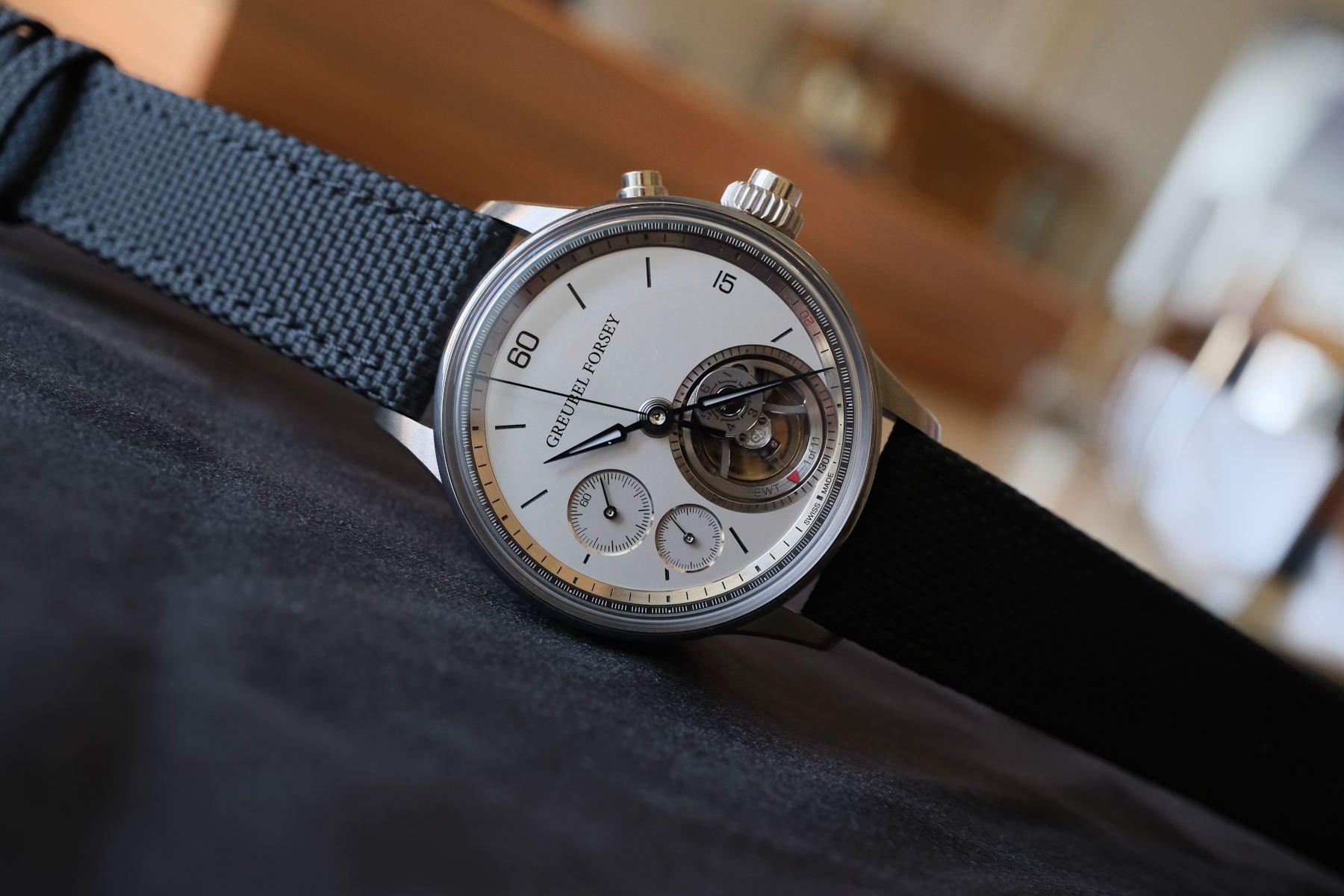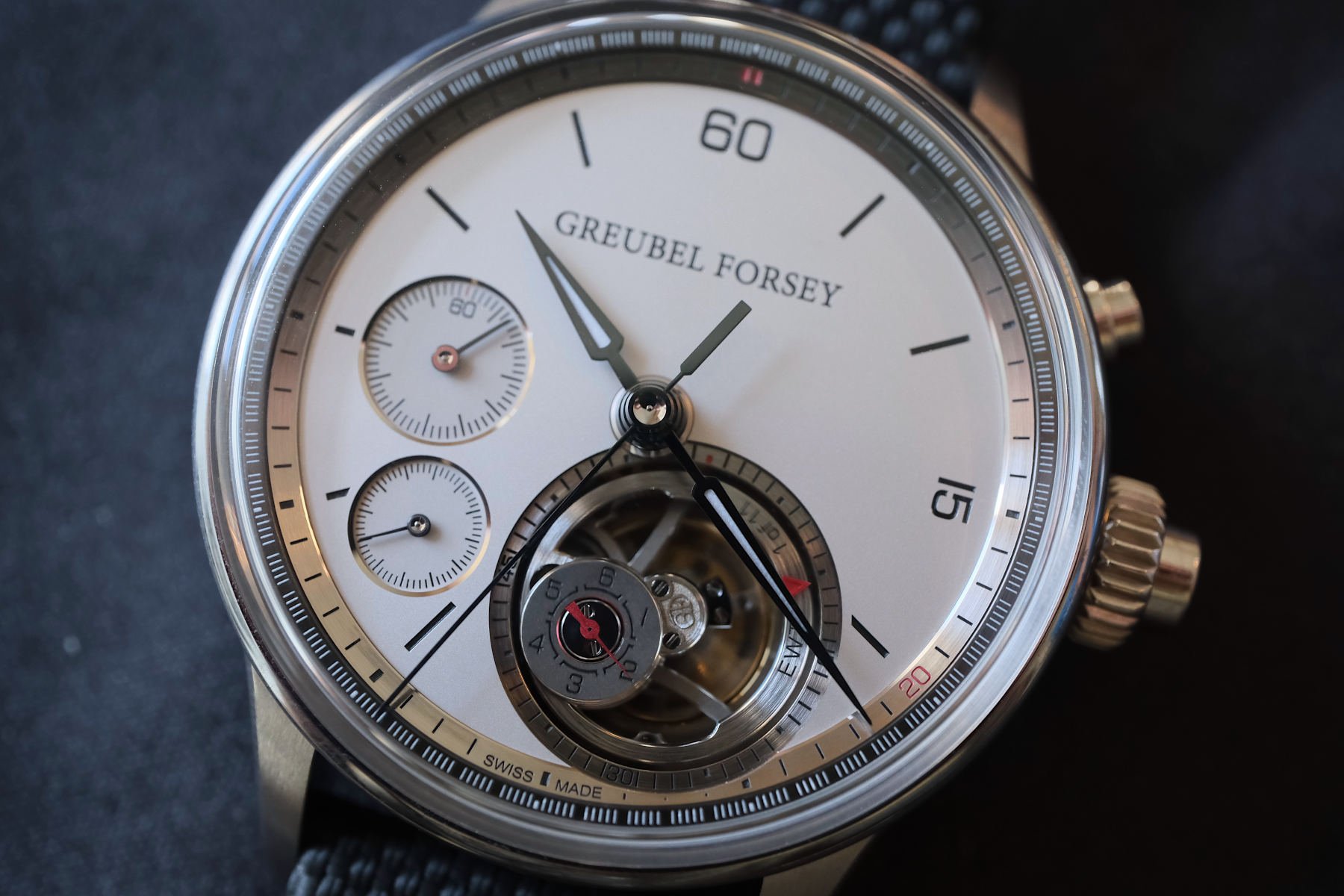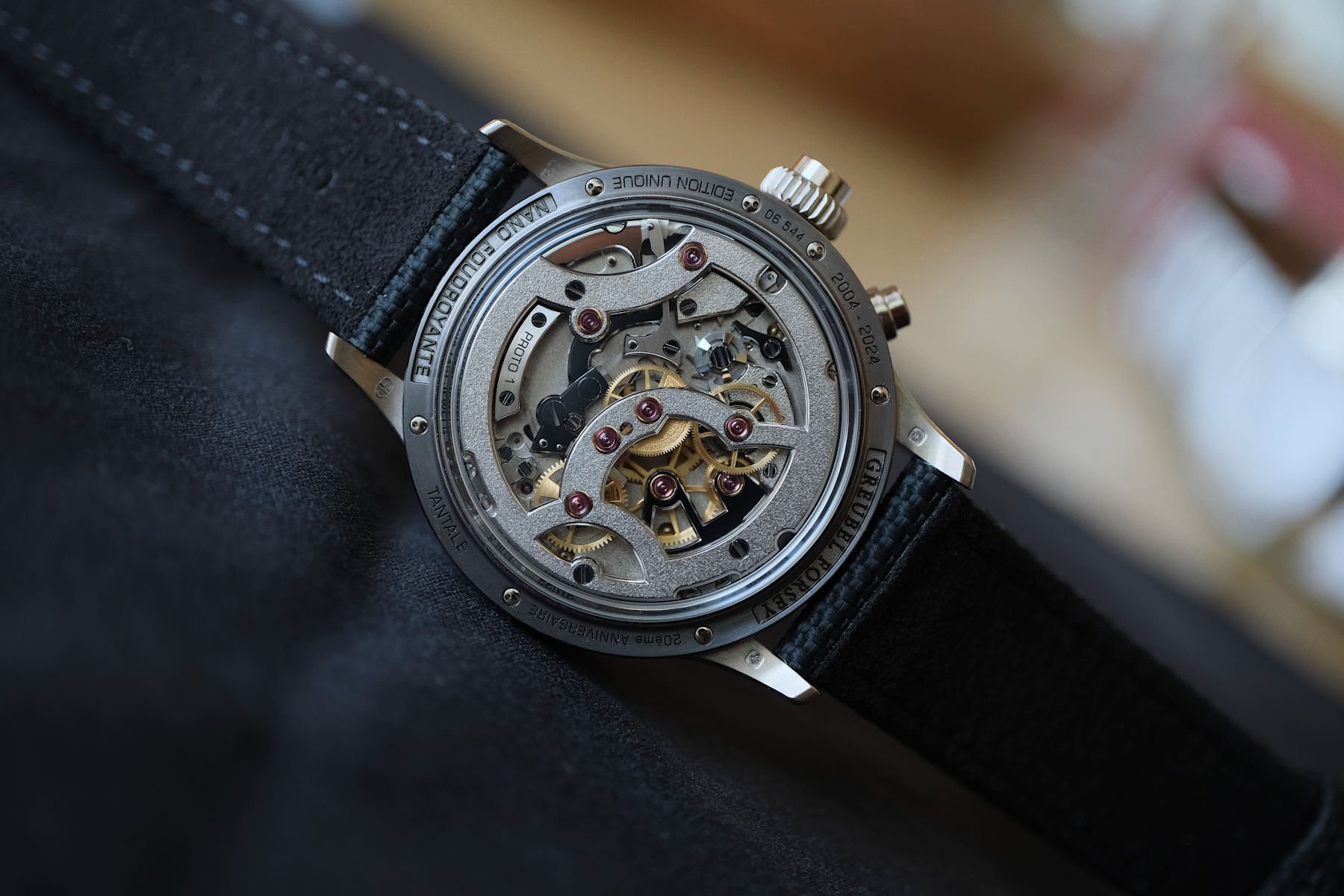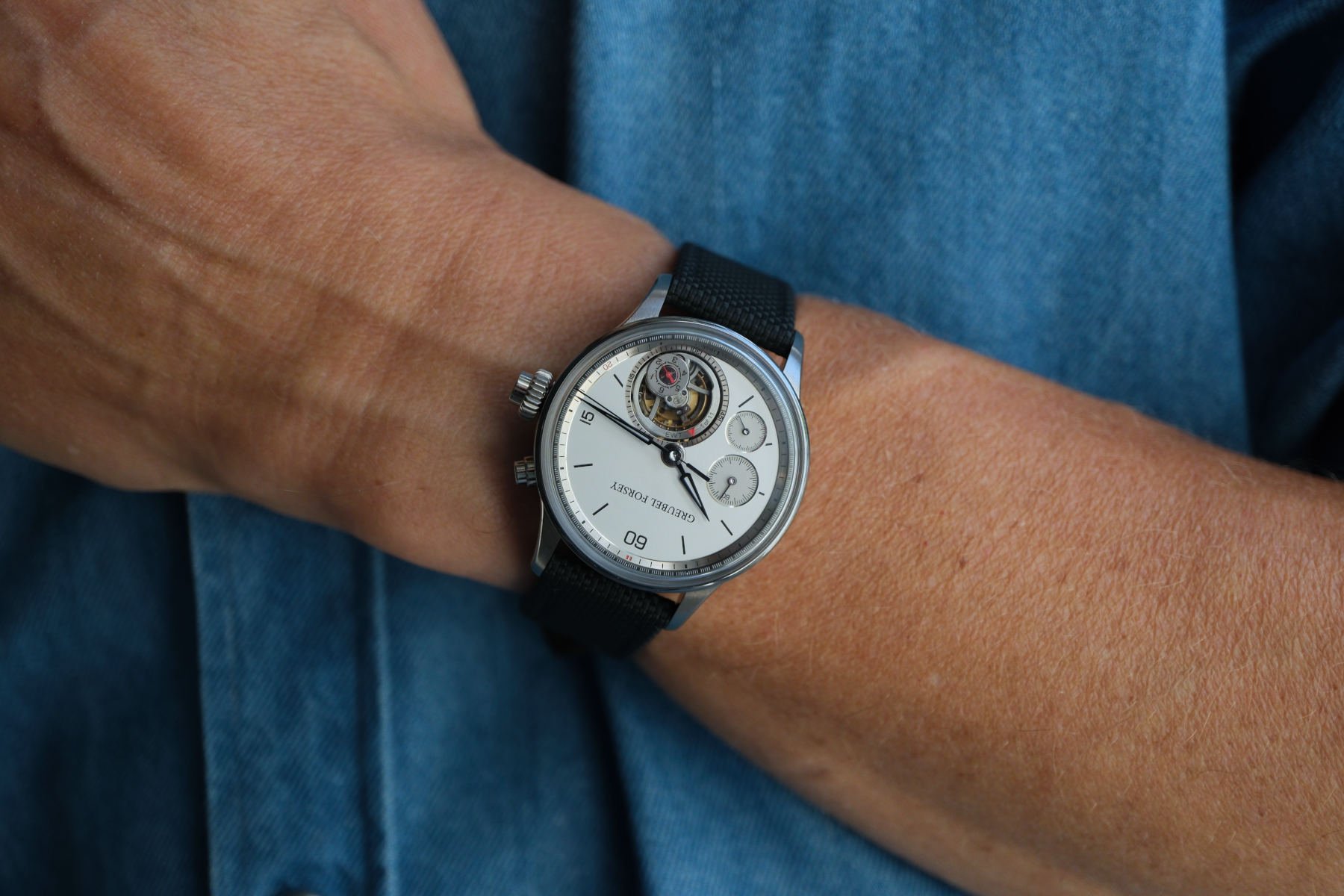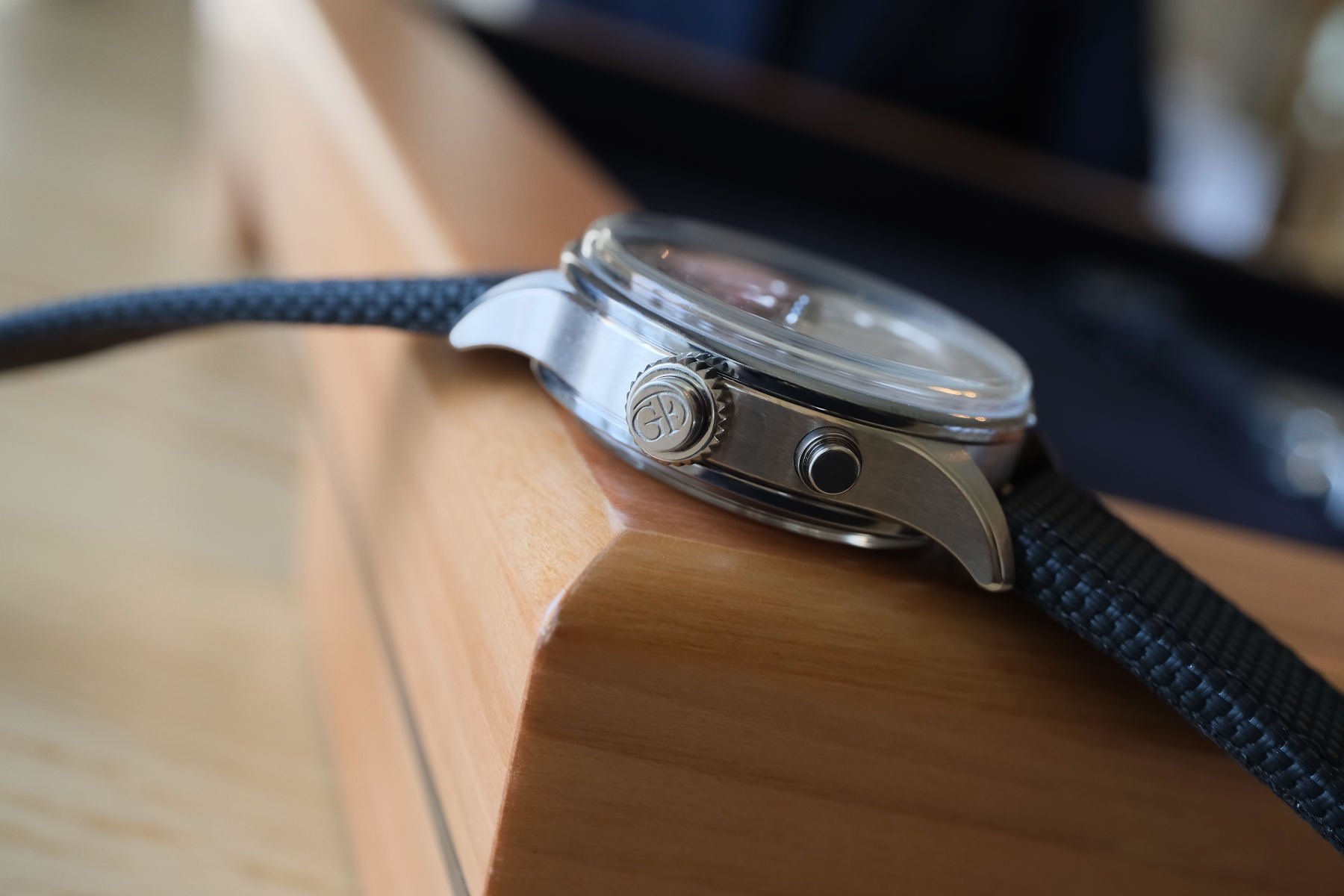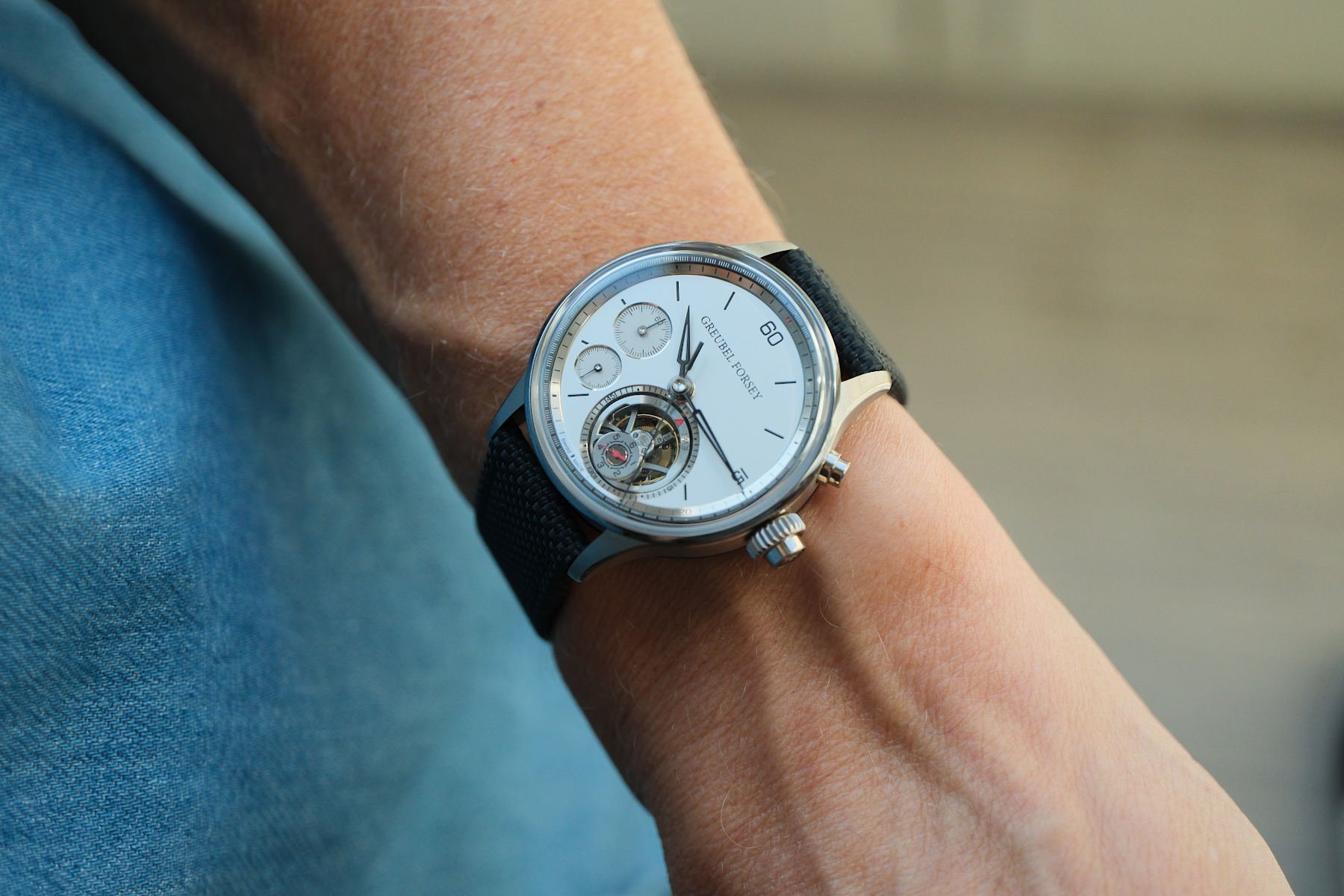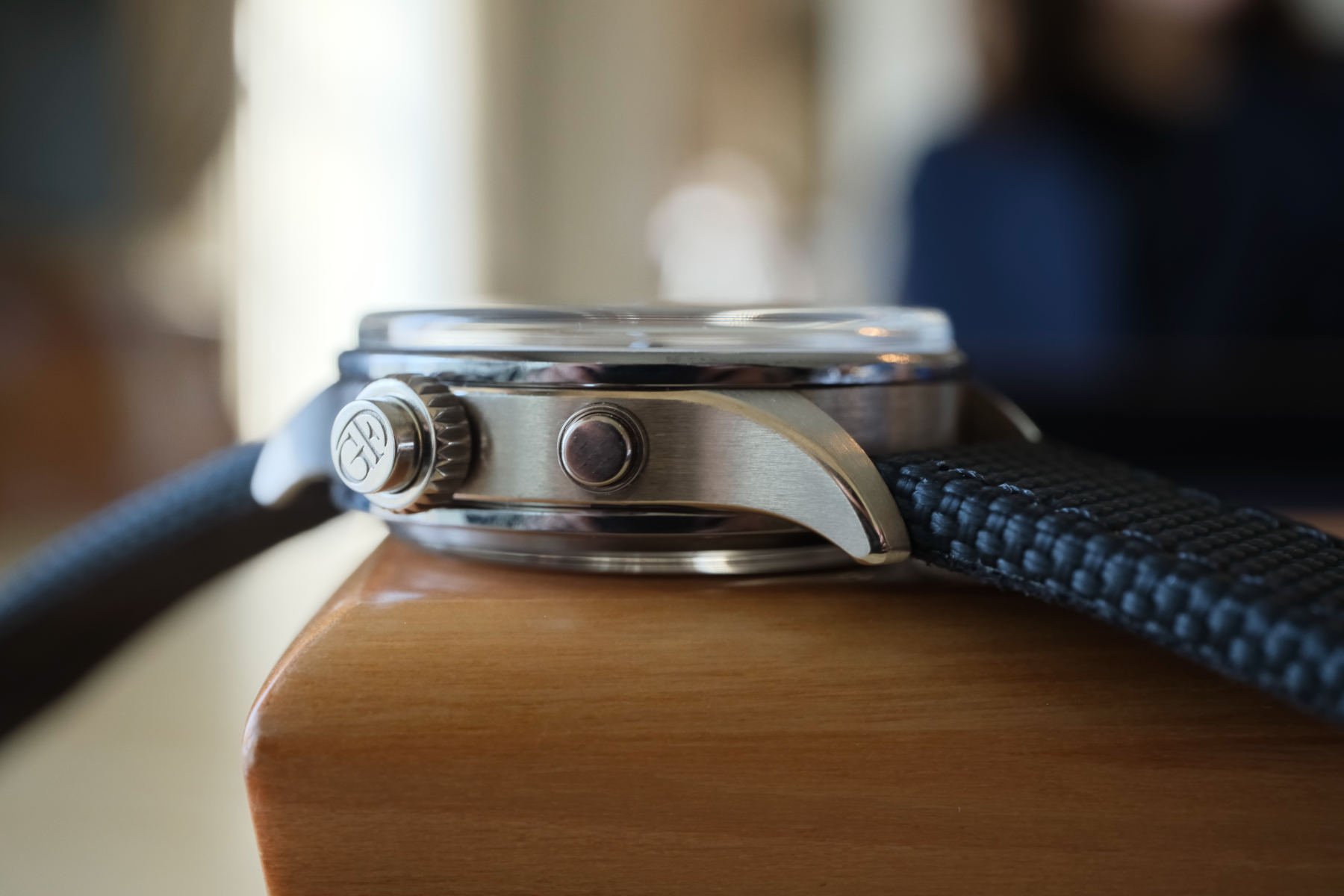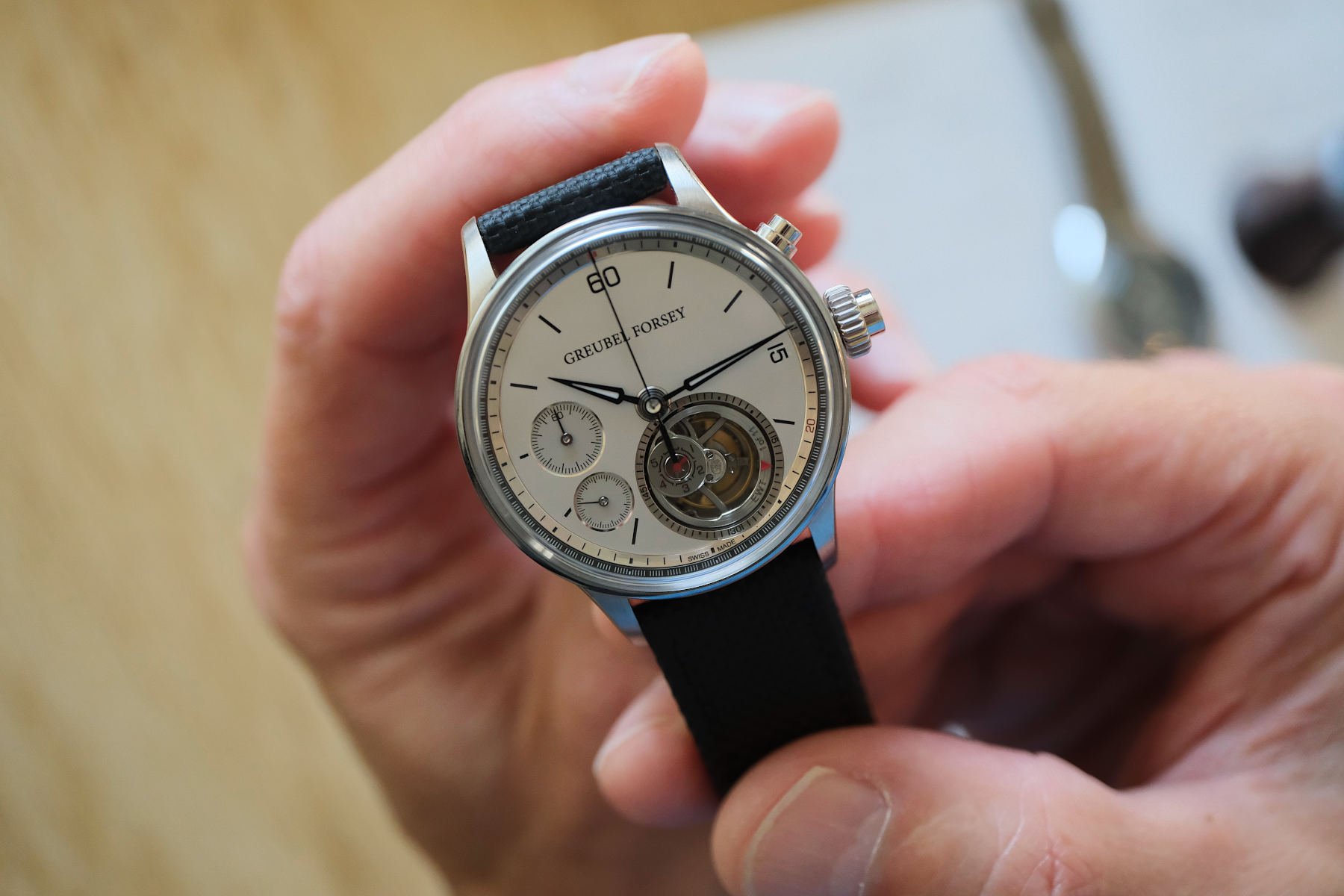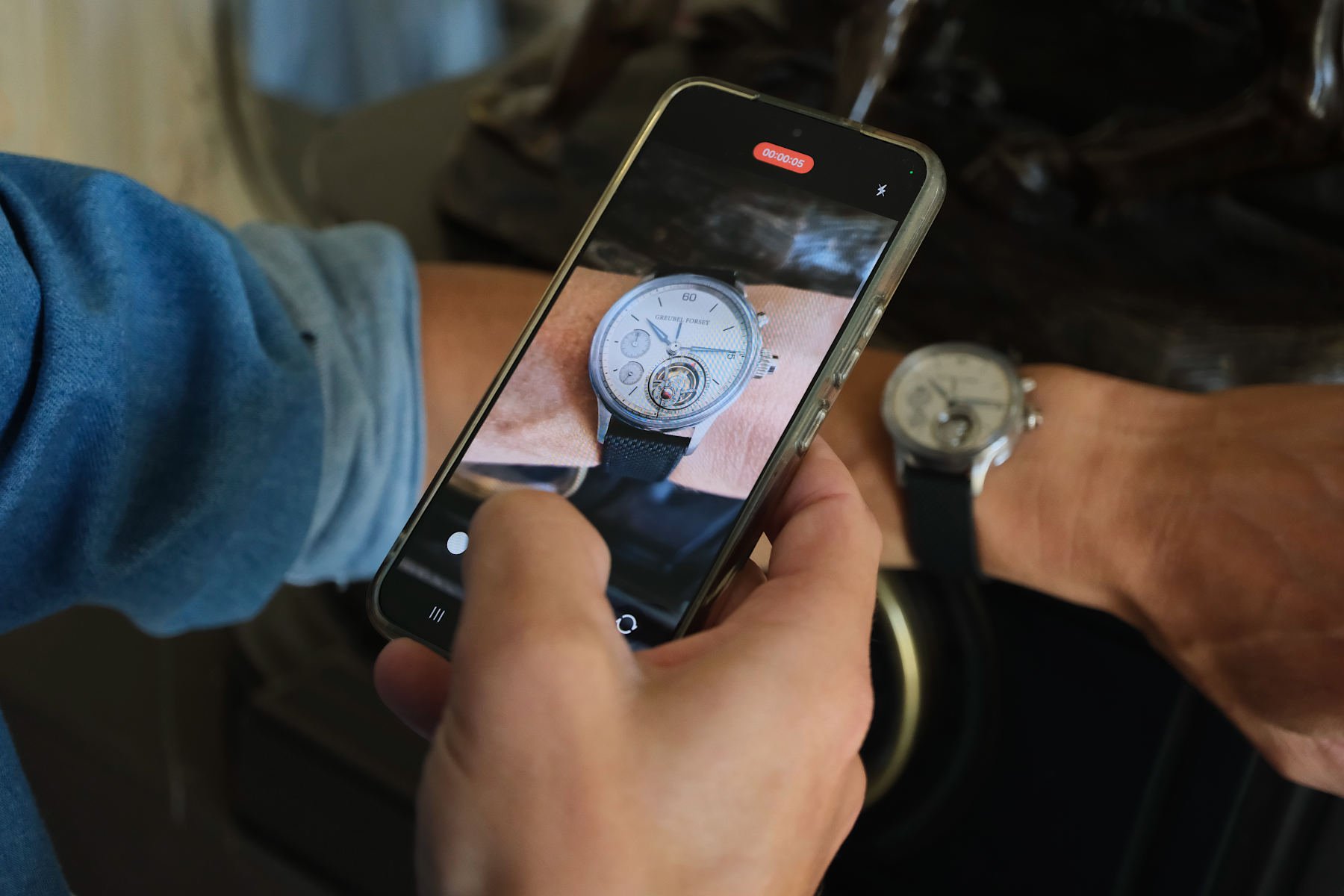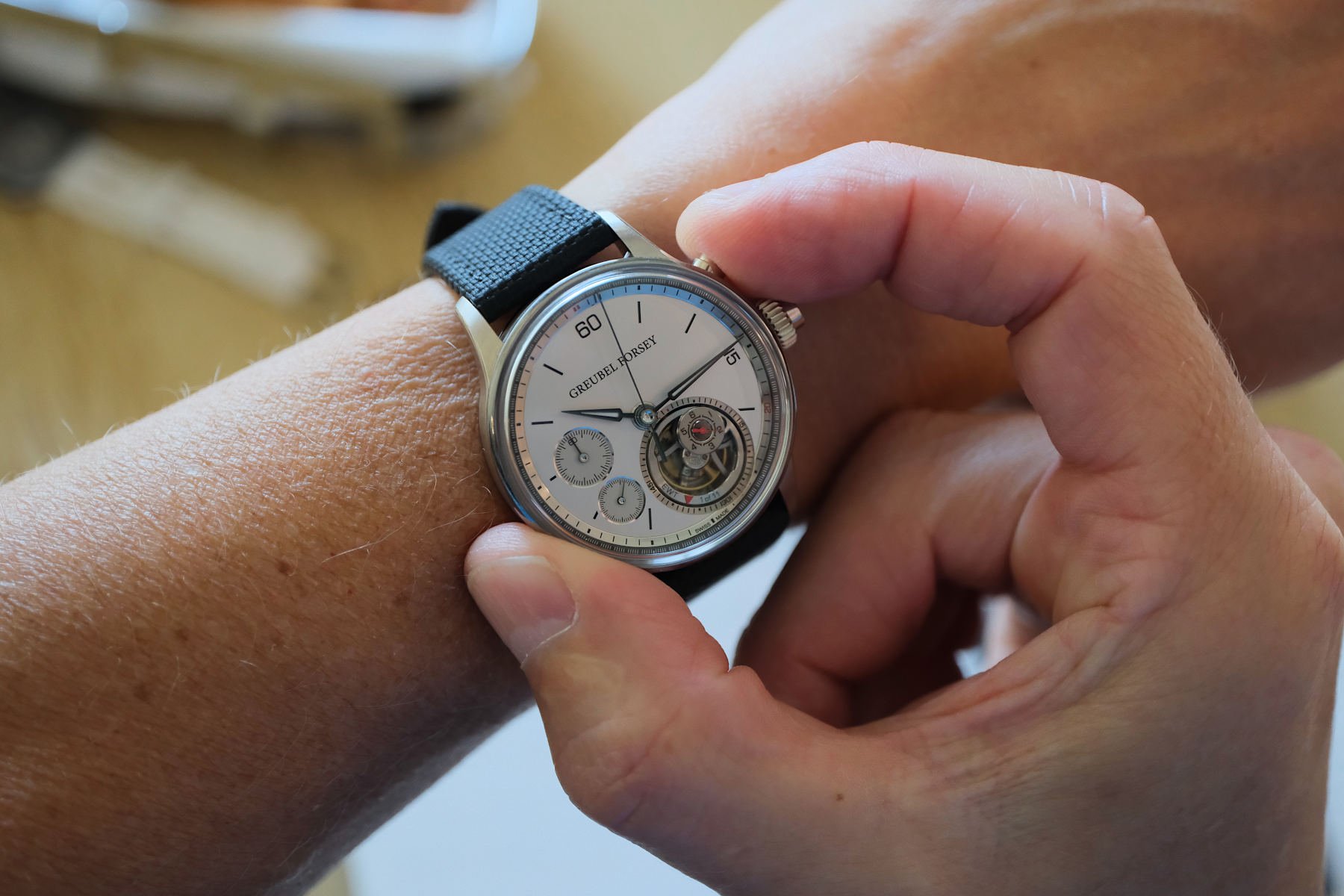Monday Morning With Greubel Forsey’s 10th Fundamental Invention, The Nano Foudroyante EWT
What better way to celebrate your 20th anniversary than by throwing a small party? No, even a tiny party is way too exuberant for Greubel Forsey, Haute Horlogerie manufacturer par excellence. That’s why the brand throws a nano party. And that’s big news because the Nano Foudroyante EWT is Greubel Forsey’s 10th “Invention Piece.” The watch’s main talking point is a Nano Foudroyante set within a flying tourbillon with an oriented reading axis. As a bonus, you get a flyback function for the hand-wound chronograph movement, which also has a column wheel for crisp and precise action. There’s also exceptional finishing of the movement for your viewing pleasure.
Forget about micromechanics; nano-mechanics are here. The Greubel Forsey Nano Foudroyante EWT is a watch that needs to be looked at differently because it was built differently. For example, the movement’s energy is managed on a nanojoule scale. Why? Because “GF” needed to significantly reduce the number of components to make its ambitious plan come to life. The technical aspects of the celebratory Nano Foudroyante EWT are baffling, but so is the watch aesthetically. The challenges the brand faced to create the groundbreaking movement it envisioned also led to a watch with a modest, somewhat paradoxical look and ditto proportions. The case is precious white gold with a bezel in heavy tantalum, creating a subtle shine but nothing too fancy. It also only measures 37.9mm wide and 10.49mm thick. Nevertheless, it is the world’s first Nano Foudroyante watch and the brand’s first-ever flying tourbillon, making this a monumental occasion.
Greubel Forsey’s 10th Fundamental Invention is the Nano Foudroyante EWT
Before you get too excited, you should know that the Nano Foudroyante EWT is limited to 11 pieces, each with a price of CHF 465,000. All 11 watches have also already been allocated. So relax and enjoy the idea of the watch, which is essentially “just” another chronograph. But it isn’t, of course, because Greubel Forsey decided to go smaller than ever in mechanical watchmaking. Was the brand inspired by the Ant-Man movies? Surely not, but diving deeper into the 428-part movement sure gives you the idea of sliding into the Nanoverse.
GF went beyond component miniaturization and took it to the nanometric level. In the case of the 10th Invention Piece, it’s all about controlling energy on a nanojoule scale within a mechanical movement. Energy is the most precious commodity within a watch movement. Therefore, it must be used carefully. The movement inside the Nano Foudroyante EWT is constructed in such a way it uses drastically less energy.
One of the tricks was to use fewer components. Yes, you read that right — fewer components. As I wrote before, the caliber consists of 428 components. However, if it were made traditionally, that number would have been way higher. Don’t forget that this is a chronograph tourbillon movement with a foudroyante running independently from the chronograph mechanism.
Like lightning
Foudroyante is French for “lightning,” and that’s exactly how quickly the hand on top of the flying tourbillon moves. The foudroyante’s hand completes one revolution per second, dividing it into segments according to the movement’s 3Hz frequency. Each oscillation of the balance wheel produces two beats, totaling six beats per second, making the hand divide the second into six segments. Normally, this function, also known as “flying seconds,” consumes a lot of energy, but Greubel Forsey realized a very energy-efficient mechanism by redesigning and reconstructing it and managing energy on a nanojoule scale.
The Nano Foudroyante operates with only 16 nJ (nanojoules) per jump, reducing energy consumption by a factor of 1,800. A traditional foudroyante consumes 30 μJ (microjoules) per jump. Energy and size are closely linked, so GF reduced the mechanism’s volume by no less than 90%. The foudroyante sits on top of the flying tourbillon to do away with a traditional gear train, and it gets its energy directly from the movement through low-inertia wheels. It is also impressive that the foudroyante constantly runs, and its indicators remain permanently aligned towards 12 o’clock for optimal readability. This is the perpetual proof of a materialized revolutionary vision.
The smallest Greubel Forsey watch ever built has a big impact
Seeing the Nano Foudroyante EWT tick in the metal was one of the event’s highlights of Geneva Watch Days 2024 (the other one was another Greubel Forsey creation I can’t say anything about yet). The smallest GF watch ever built sure left a big impression. And apart from the mesmerizing foudroyante blitzing around on the spinning tourbillon, the detailing of the watch is very introverted. The movement’s finishing is of the highest quality, the straight-brushed white gold case has sharp bevels, and the front and rear tantalum bezels show a shiny, polished finish. And since we’re on the topic of finishing, the movement shows bridges with a hammered finish on the flat surfaces and polished anglage, while the chronograph mechanism shows black-polished steel components. Gold chatons and the gold wheel train contrast richly with the gray shimmer of the bridges and other steel parts.
The rather busy dial, with its proportionally large opening showing off the flying seconds running 60 times faster than the tourbillon beneath, manages to come across as a monochromatic, crisp, and clean affair. The chronograph measures elapsed seconds through a centrally mounted hand, and there’s a 60-minute counter at 9 o’clock. Another running seconds display also sits between 7 and 8 o’clock.
A hypothetical dilemma
Regarding the running seconds display, it is a bit weird to see that on a watch with a tourbillon that also acts as a running seconds display with its red triangle and indication on the outside. If I give the Nomos Tangente 2date flak for displaying the same function twice, I should also mention it here. And I did. It is also the only aspect of the watch I don’t care for. The dial would have been even cleaner without the extra sub-dial.
Would the double display of the seconds be a deal-breaker if I were in a position to buy one of the 11 watches made? I can’t answer that right now. It will take me a bit of effort to get into character, so to speak. Only if I can fully grasp what goes on inside the mind of the most “spoiled” watch collector can I answer that question. You can ask me later.
One thing I can say is that handling the watch and wearing it is something incredibly special. The pusher at 2 o’clock starts and stops the chronograph, and the pusher nestled inside the winding/setting crown is the reset/flyback pusher. Both pushers have a delicately mechanical feel. While the diameter of the watch might be on the small side, the proportions are a bit stocky, which gives the watch a lot of wrist presence. And if that weren’t enough, the tourbillon spinning the flying seconds around is quite the spectacle indeed.
What do you make of Greubel Forsey’s 10th Fundamental Invention, the Nano Foudroyante EWT? Can you wrap your head around the engineering that went into this watch? Share your impressions in the comments.

